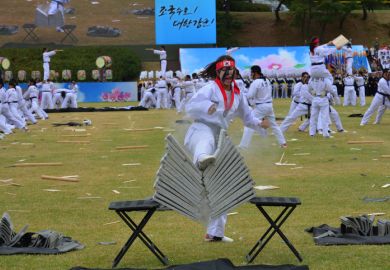The word memory has two meanings. It may refer either to something that is remembered, or to the brain mechanisms and processes that allow us to recall the past.
Both meanings cut across barriers of time. We have memories of childhood and memories of what we were doing ten minutes ago. The two meanings also cut across modern divisions between arts and sciences. Central to any art is the use, perhaps even the manipulation, of an observer's memory to provoke emotions and responses in that observer. Yet what we remember and what we know, are somehow coded in the neuro-physiology of our brains. Cognitive neuroscience is making progress in understanding the biology of memory and cognitive psychology has contributed to our understanding of the higher-level processes of memory, but many mysteries of memory remain. The most intriguing aspect is the role of memory in our conscious experience. Memory is personal and we are our memories, or at least we think we are.
Memory is a collection of essays based on the 1996 series of public lectures organised by Darwin College, Cambridge. The essays consider memory in its broadest sense. The contributors are drawn from the arts and sciences and contributions include studies of historical and social memory, personal memory and its breakdown, and neuro-physiological and computational studies of learning.
The volume is targeted at a general readership and while the individual essays are scholarly, the emphasis is on explaining and understanding memory - in all its guises. In the main, the essays achieve this. Most are readable and many are also entertaining.
The editors also suggest, however, that the contributions to Memory are inter-disciplinary - that the individual essays inter-link and illustrate how the arts and sciences can usefully contribute to a greater understanding of memory. In truth, there are few explicit cross-references between chapters and readers are left to divine the links themselves.
Nevertheless, a number of themes emerge. Perhaps the strongest is that of forgetting, together with the subsequent re-remembering, reconstructing and reinterpreting of the past. This is seen in essays on social memory and history (Richard Sennett and Catherine Hall), anthropology (Jack Goody), psychoanalysis (Juliet Mitchell), and neurological disorders of memory (Barbara Wilson).
My personal interest is more in the neuro-physiological and computational side, and essays by Steven Rose and Terrence Sejnowski address these issues. But the highlight of this volume for me was undoubtedly the contribution by the novelist A. S. Byatt. Perhaps it is not surprising that a novelist should produce the most readable piece in the volume, but Byatt's essay is also strong on literary theory - on how novelists, including herself, George Eliot and Marcel Proust, use memory in the construction of a story, and on how her personal memories emerge in, and shape, the fiction she writes.
Other high points include Goody's intriguing discussion of the way in which cultures that lack writing express and remember their history. He describes how cultural histories, related through interpretations of pictorial scrolls and oral monologues, have changed since his initial work on the subject in the 1950s. Sennett's case study of a group of sacked employees reconstructs the causes of their dismissal. He describes how blame shifted as a group of IBM computer programmers attempted to rationalise their sacking, first in relation to their ex-employer, then to cheaper foreign programmers, and finally to themselves. Wilson discusses the consequences of organic brain damage on memory. Her presentation of case studies of patients with memory disorders following neurological damage provokes morbid fascination. How does one cope when one has no recollection of anything earlier than the past 15 minutes? Wilson discusses such a patient, but ends on a positive note. Modern techniques and devices that seek to redress memory loss are available. For some patients such devices allow a near-normal life.
To sum up, this volume is an eclectic mix. The lack of coherence between chapters is frustrating, but the general reader is sure to find a number of contributions that are both fascinating and scholarly.
So are we our memories? Those of us who are averagely forgetful cannot comprehend how memory loss might affect us, but Wilson's account of one young amnesic suggests we are much more than our memories. Her patient states: "I don't mourn the loss of my memory as I can't remember what it used to be like ... I think it suits my character."
Richard Cooper is lecturer in psychology, Birkbeck College, London.
Memory
Editor - Patricia Fara and Karalyn Patterson
ISBN - 0 521 57210 X
Publisher - Cambridge University Press
Price - £17.95
Pages - 201
Register to continue
Why register?
- Registration is free and only takes a moment
- Once registered, you can read 3 articles a month
- Sign up for our newsletter
Subscribe
Or subscribe for unlimited access to:
- Unlimited access to news, views, insights & reviews
- Digital editions
- Digital access to THE’s university and college rankings analysis
Already registered or a current subscriber?



